
Hiring the right people is hard, as detailed in my struggles when building our team.
Once you hire the work isn’t over as now you need to create or breed a culture that supports the people so they can do their best work.
Creating a remote culture is even harder as there’s a lack of an everyday tangible connection to the team.
As co-founder of BestSelf Co, a young bootstrapped company we knew that we weren’t going to be able to contend with other big companies on salaries, benefits, or cool office space when we were building out our team.
Given this, how do you motivate people to do their best work?
You make work more than just collecting a paycheck.
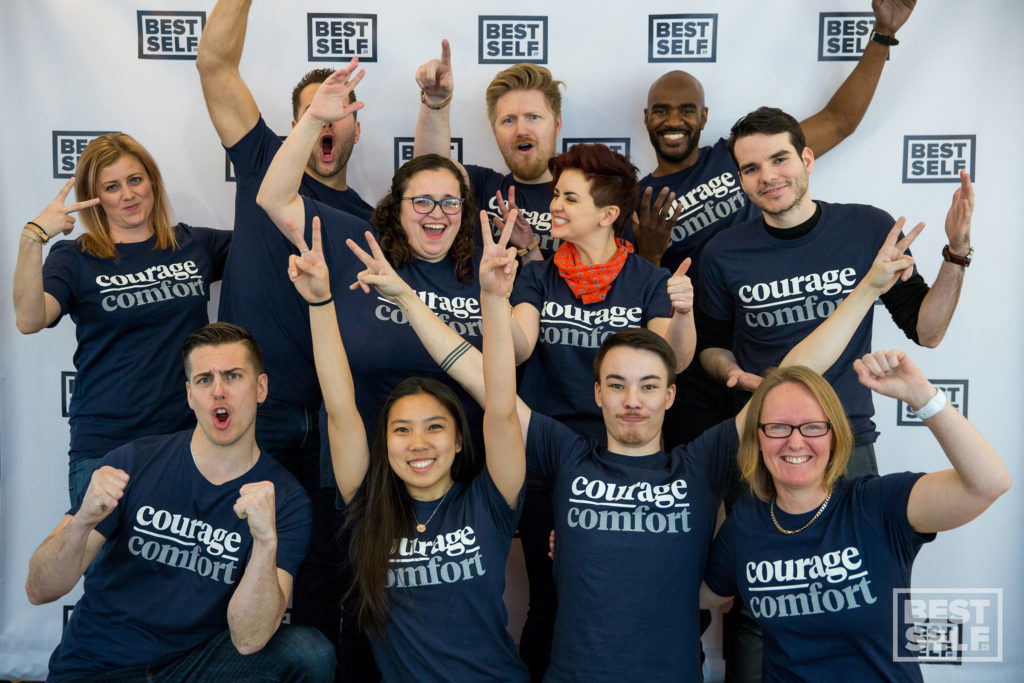
Feeling aligned with a company’s values, mission and philosophy is one of the top reasons employees love where they work. It’s also a primary reason that consumers feel they have a relationship with brands.
Given that I’ve never worked at a remote company, nor at a company with a great culture, it was difficult to understand what that could even look like so I started doing some research.
A company famous for its company culture is Zappos. I would highly recommend reading ‘Delivering Happiness: A Path to Profits, Passion, and Purpose’ by Tony Hsieh which had a big impact when creating ours at BestSelf Co.
I learned that one of the first steps to creating a cohesive culture within your team is to first define what your core values are. However, knowing we should do it and actually taking the time to do it are two different things.
After winning the Shopify Build a BIGGER Business competition in 2017 we were given the opportunity to spend time in Fiji with Joe Gebbia in, co-founder of AirBnB. Our big takeaway from our time with him was to sit down and define our core values — before we left the island.
It’s easy as a founder to push things like this to the side when you’re growing because it doesn’t seem like a high priority. However, had we done this process earlier we’d have saved ourselves a lot of heartache, specifically with our hiring process.
Some examples of companies with core values:
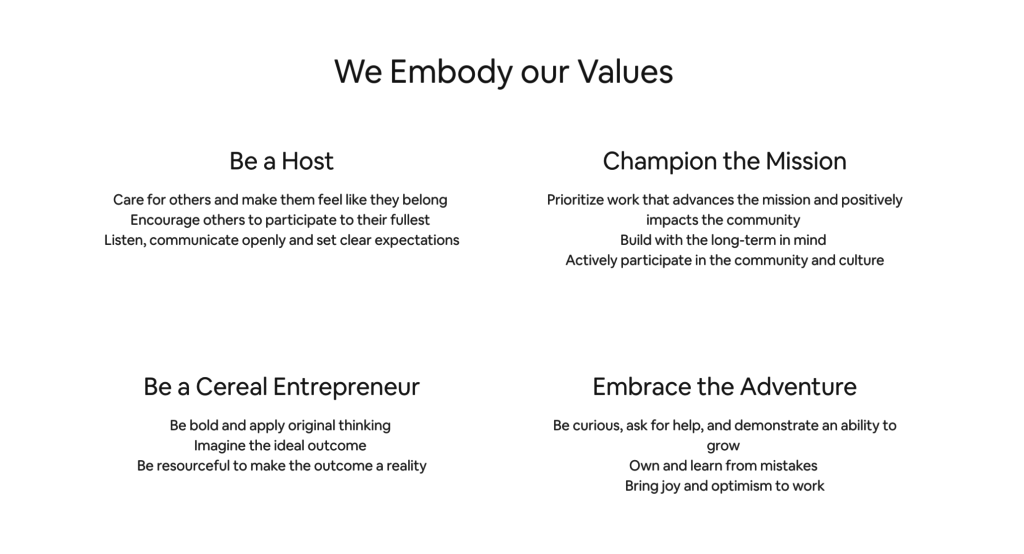
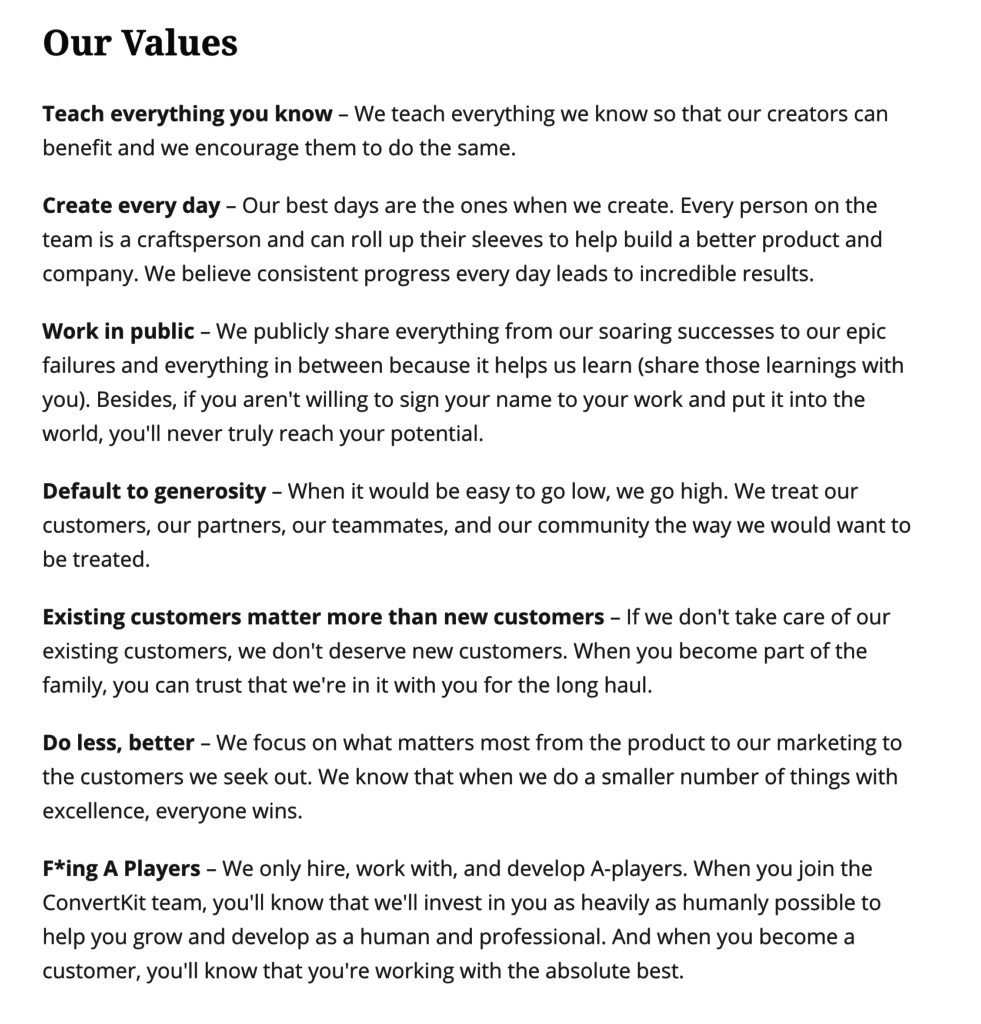
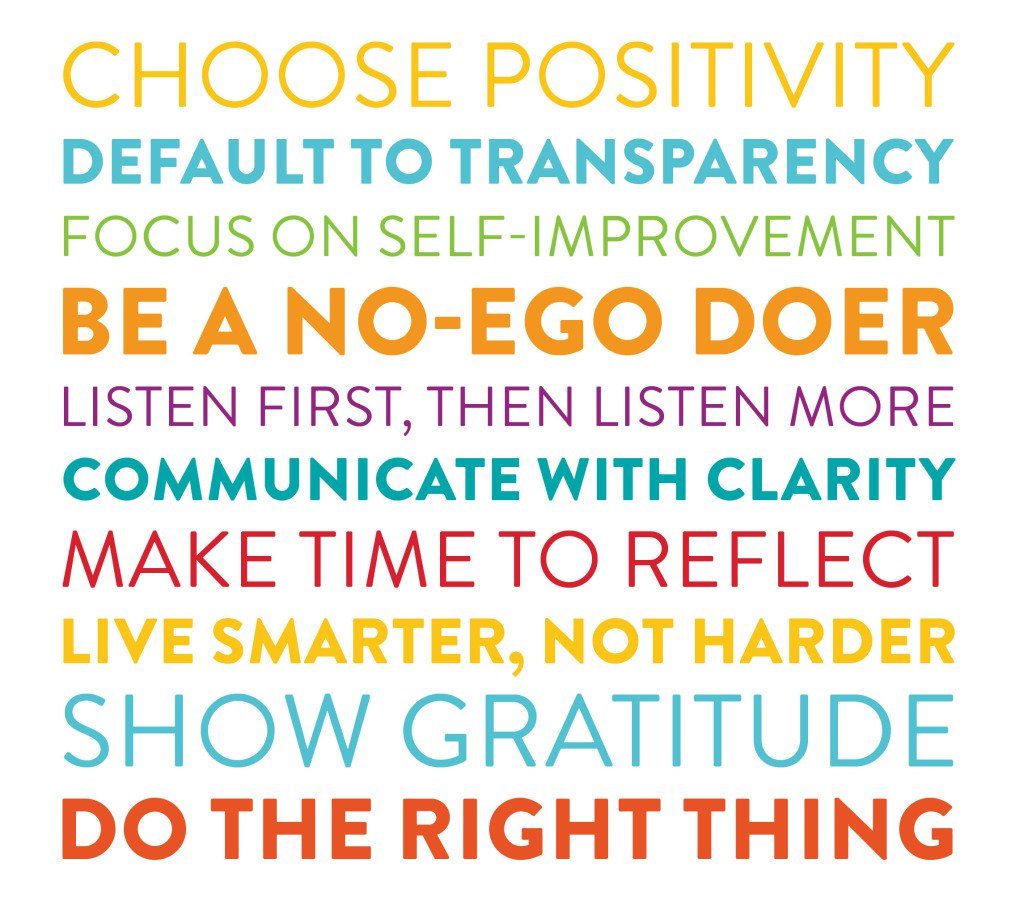
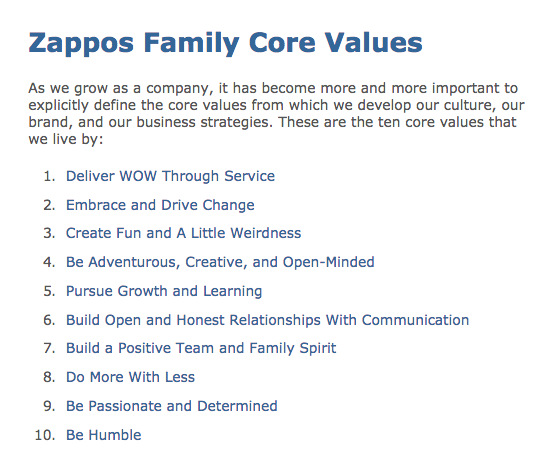
All these companies have very clear and defined core values.
Our Process
When Allen and I sat down to define our core values we shared our personal values that we knew had been crucial when starting and growing the company thus far.
Then we looked to our team to see what core ideas and methodologies had already been floating around.
When Zappos created their core values in 2005 they asked their team to share their own personal values, which they combined and compared against the team. This is the email they sent out:
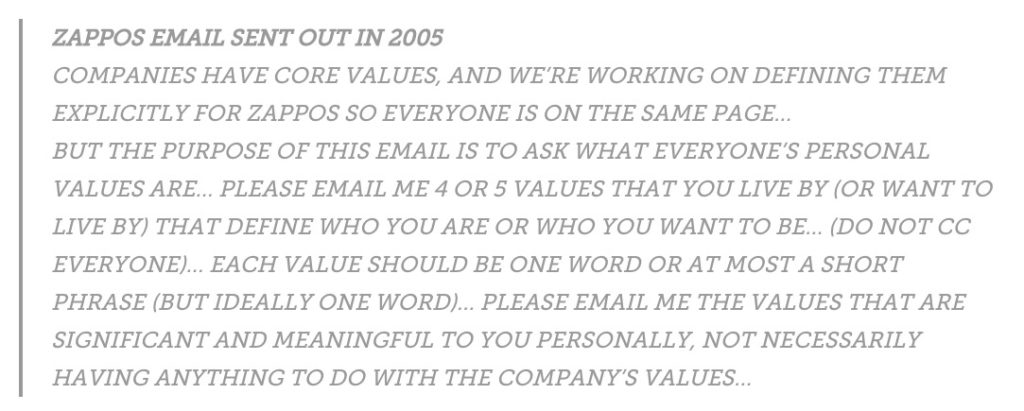
Our team was 8–10 people whenever we sat down to define our core values. While we didn’t follow the same structure as Zappos with having them share their values, we instead took the key employees (the ones we’d love to clone) and defined the values that made them great.
This exercise was challenging in that after completing it we could see a few team members that did not share our core values, which made for some hard choices to be made.
Had we completed this exercise earlier and known our core values it would have been much more clear who was the right fit (and who wasn’t) during the hiring process.
After some massaging and consideration, here’s what our core values look like now:
1. Default to Action
Make decisions, take initiative, and solve problems. A little less conversation, a little more action.
Allen and I have always defaulted to action. It’s the reason we initially became accountability partners, and why I asked him to be my partner on our first Amazon business — because I knew I could count on him to get shit done.
2. Assume Positive Intent
We give each other the benefit of the doubt always whether it’s a teammate, vendor, or customer. Always assume that people are doing the best with what they’ve got.
We give people the benefit of the doubt at all times. We believe the world would be a much kinder place if more people did this as when we assume negative intent we get angry and frustrated.
By assuming the opposite automatically we can be better listeners and be more effective in our communication. With a remote team, this is especially important.
3. Absolute Ownership
Everyone has a stake in the success of the company and should be passionate about growth opportunities. Act like owners.
I got this concept from ‘Extreme Ownership’ by Jocko Willink, a former Navy SEAL who shares the idea that the team believes in the “why,” understands the “why,” and then pursues the “what.”
This begins at the top with the leader but flows down to the rest of the team who should “own it all.”
4. Thrive in Discomfort
We believe the status quo is soul-sucking. We focus on continuous learning and personal development so we’re better than yesterday but not as good as tomorrow.
All growth comes from discomfort, and since I’ve made it a point to step outside my comfort zone my life has changed for the better.
We want our team to constantly work on improving themselves while working with us so they also can become their Best Self. We do this by investing in them through conferences, an internal reading program, and setting an example for them of stepping outside our comfort zone.
For example, I signed up for a Spartan race with 5 days' notice this month and signed up for a 40-mile bike race earlier this year (before even owning a bike) to force myself outside of my comfort zone.
5. Best is our standard
Constantly work to raise your standards in every area of life and the universe will meet you there.
We believe that how you do anything is how you do everything and whether it’s in your personal life or within BestSelf Co we always aim to do our best. By doing our best we’ll consistently raise our standards and others will raise theirs to meet us.
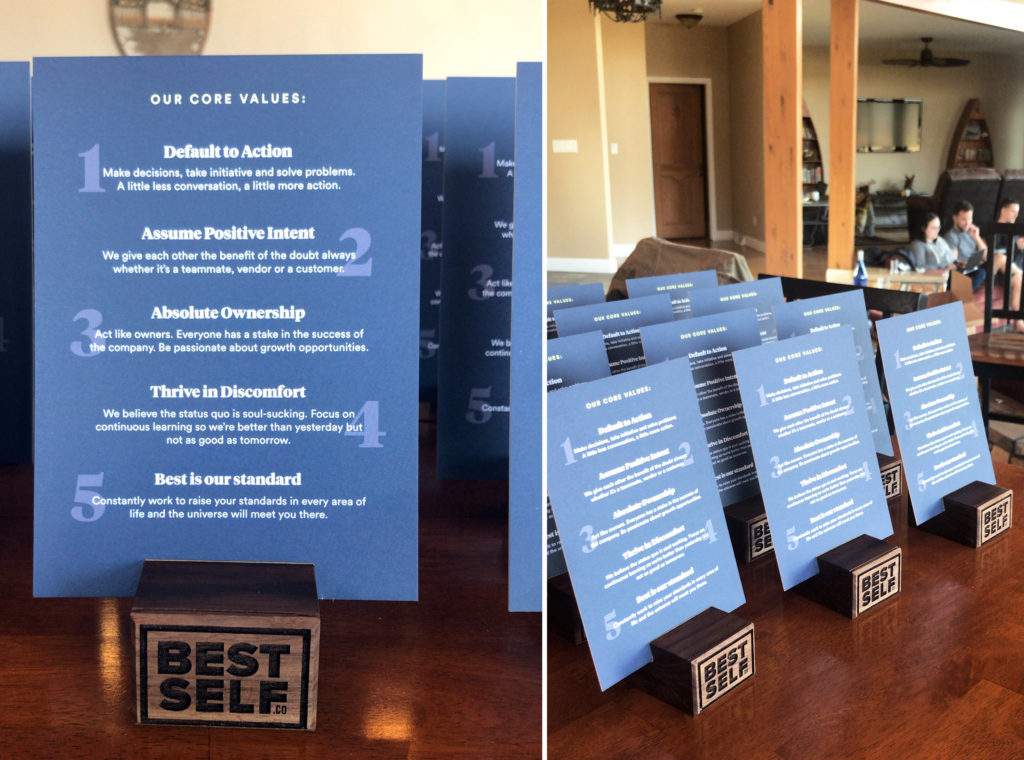
Weekly implementation:
To ensure the Core Values are not just meaningless statements that we created once and never look back on we have established weekly accountability.
Each week we do a round-robin and ask the team to choose one team member and an action they completed in the past week that demonstrates one of our core values.
At our BestSelf Unlocked event, we did a short segment on core values in which we had our team present one core value in pairs, and what each meant to them.
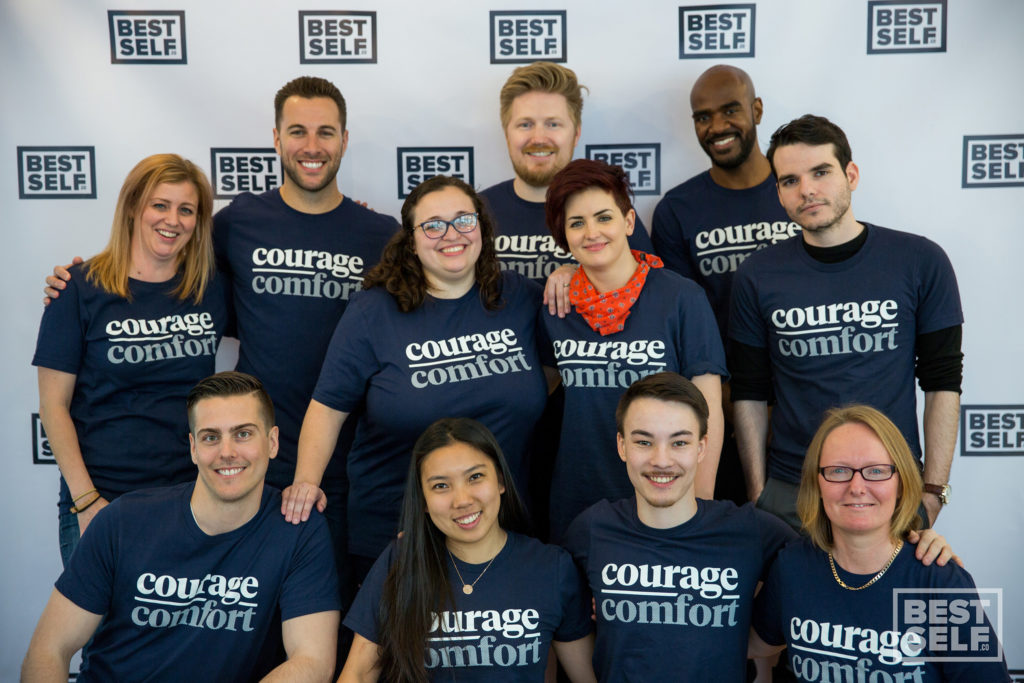
Share your values!
Does your company have a set of core values established? If so, how were they created and implemented?
Become a subscriber receive the latest updates in your inbox.





